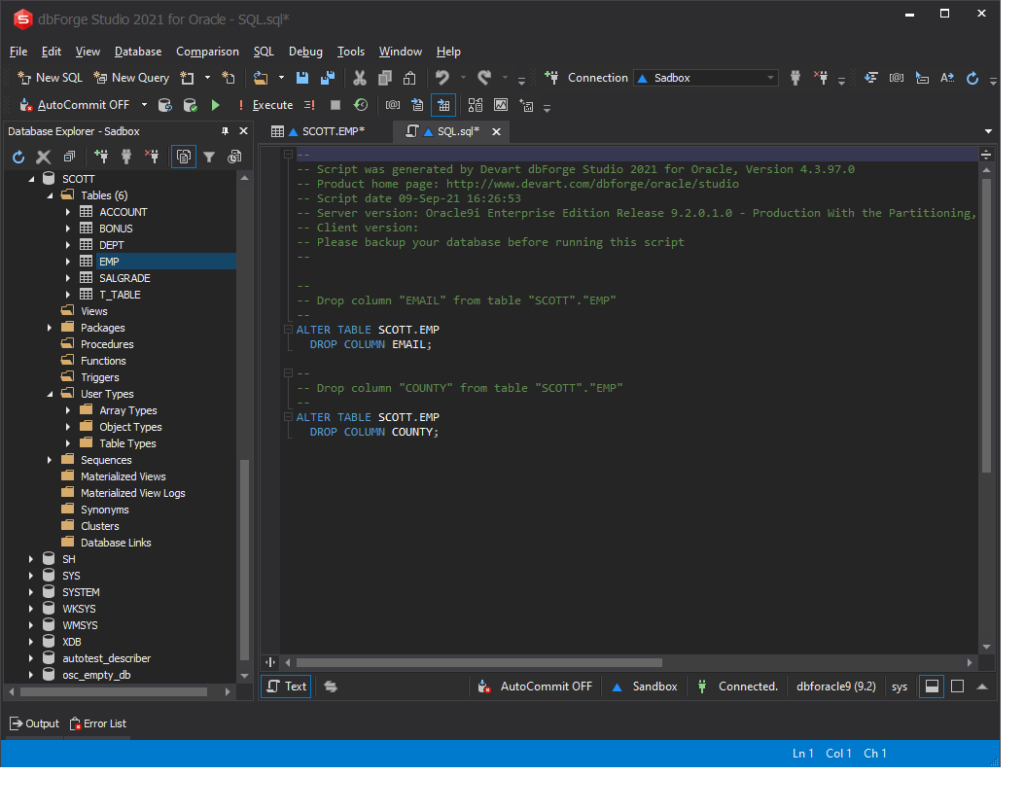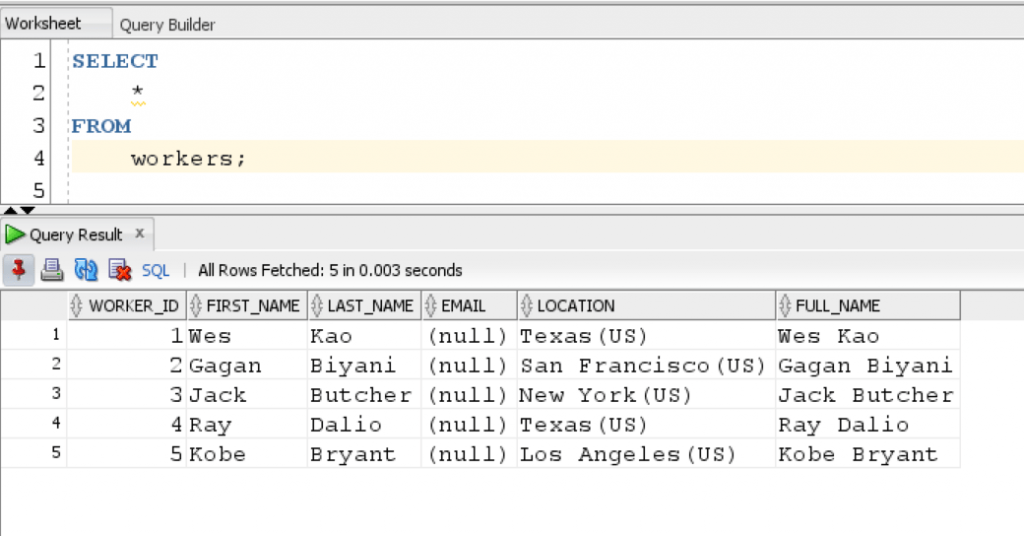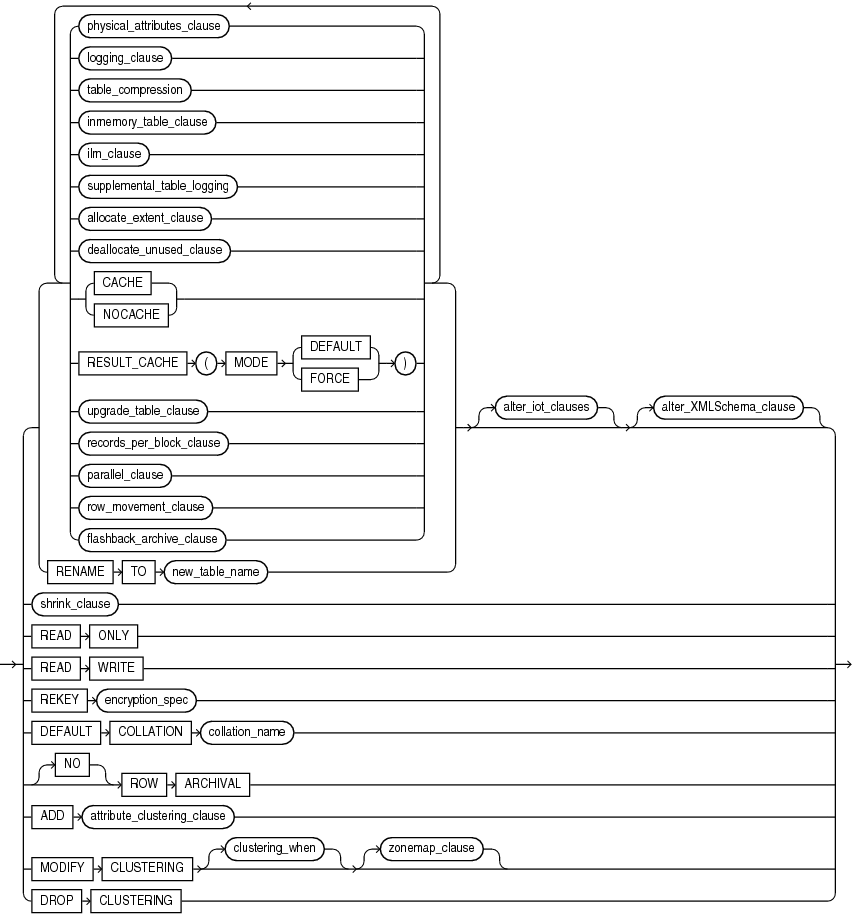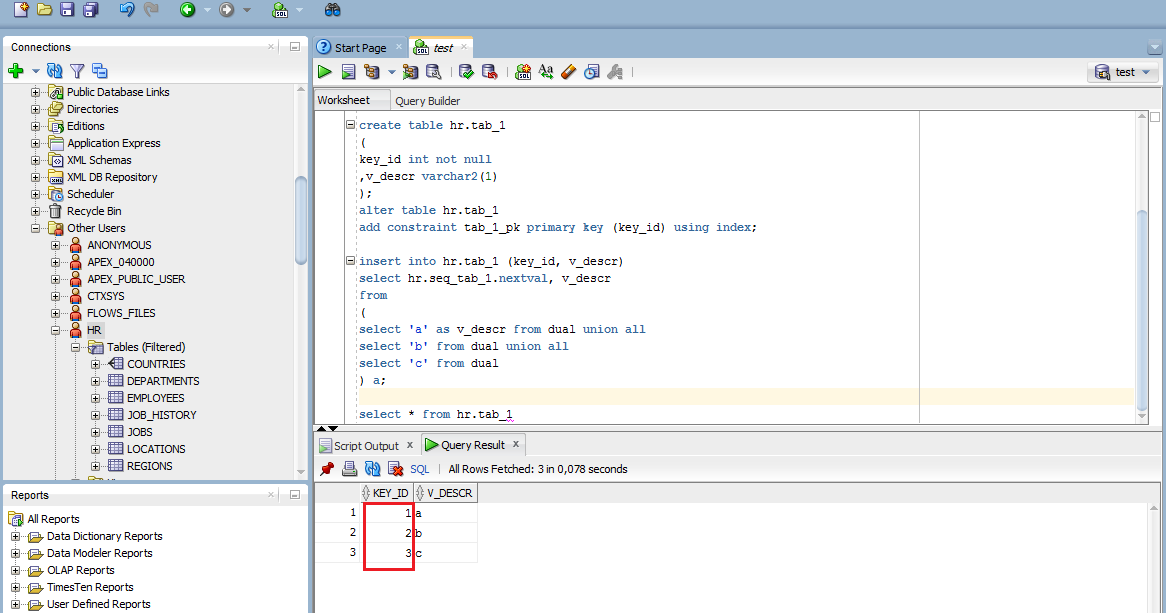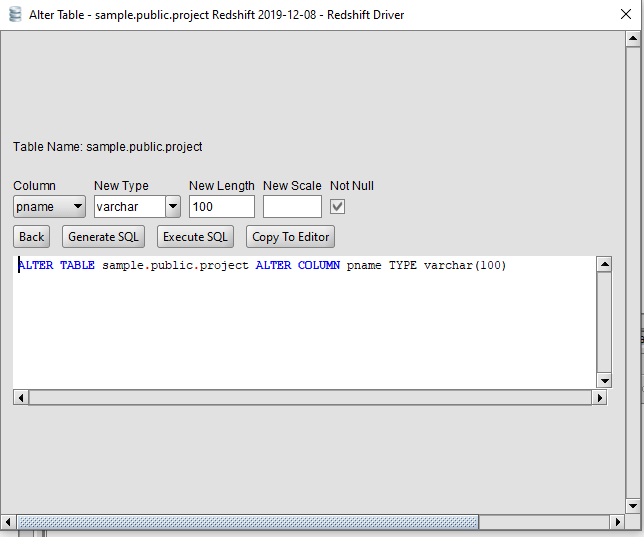Alter Table Change Column Name Oracle
Alter Table Change Column Name Oracle - This tutorial shows you how to use oracle alter table statement to alter table structure e.g., add, modify, rename or remove columns and rename a. Oracle allows you to rename existing columns in a table. To modify a column in an existing table, the oracle alter table syntax is: The rename column statement allows you to rename an existing column in an existing table in any schema (except the schema sys). Use the rename column clause of the alter table statement to rename. Select first_name as emp_name from employees;.
The rename column statement allows you to rename an existing column in an existing table in any schema (except the schema sys). Select first_name as emp_name from employees;. This tutorial shows you how to use oracle alter table statement to alter table structure e.g., add, modify, rename or remove columns and rename a. Oracle allows you to rename existing columns in a table. To modify a column in an existing table, the oracle alter table syntax is: Use the rename column clause of the alter table statement to rename.
Use the rename column clause of the alter table statement to rename. The rename column statement allows you to rename an existing column in an existing table in any schema (except the schema sys). Select first_name as emp_name from employees;. Oracle allows you to rename existing columns in a table. To modify a column in an existing table, the oracle alter table syntax is: This tutorial shows you how to use oracle alter table statement to alter table structure e.g., add, modify, rename or remove columns and rename a.
Oracle Alter Table Modify Column Example
Use the rename column clause of the alter table statement to rename. Oracle allows you to rename existing columns in a table. Select first_name as emp_name from employees;. The rename column statement allows you to rename an existing column in an existing table in any schema (except the schema sys). To modify a column in an existing table, the oracle.
alter table modify alter table modify column oracle
Use the rename column clause of the alter table statement to rename. Select first_name as emp_name from employees;. The rename column statement allows you to rename an existing column in an existing table in any schema (except the schema sys). To modify a column in an existing table, the oracle alter table syntax is: Oracle allows you to rename existing.
Oracle ALTER TABLE MODIFY Column with Practical Examples
Use the rename column clause of the alter table statement to rename. This tutorial shows you how to use oracle alter table statement to alter table structure e.g., add, modify, rename or remove columns and rename a. Oracle allows you to rename existing columns in a table. To modify a column in an existing table, the oracle alter table syntax.
Oracle 11g Alter Table Modify Column Type Matttroy
Select first_name as emp_name from employees;. The rename column statement allows you to rename an existing column in an existing table in any schema (except the schema sys). This tutorial shows you how to use oracle alter table statement to alter table structure e.g., add, modify, rename or remove columns and rename a. Use the rename column clause of the.
Alter Table Modify Column Datatype Oracle 11g Matttroy
Select first_name as emp_name from employees;. The rename column statement allows you to rename an existing column in an existing table in any schema (except the schema sys). Use the rename column clause of the alter table statement to rename. To modify a column in an existing table, the oracle alter table syntax is: Oracle allows you to rename existing.
Oracle Alter Table Modify Virtual Column Example
Oracle allows you to rename existing columns in a table. Use the rename column clause of the alter table statement to rename. To modify a column in an existing table, the oracle alter table syntax is: This tutorial shows you how to use oracle alter table statement to alter table structure e.g., add, modify, rename or remove columns and rename.
How to Change the Column Name in Oracle 4 Steps (with Pictures)
Use the rename column clause of the alter table statement to rename. To modify a column in an existing table, the oracle alter table syntax is: Oracle allows you to rename existing columns in a table. The rename column statement allows you to rename an existing column in an existing table in any schema (except the schema sys). Select first_name.
Oracle ALTER TABLE operator
This tutorial shows you how to use oracle alter table statement to alter table structure e.g., add, modify, rename or remove columns and rename a. Use the rename column clause of the alter table statement to rename. Select first_name as emp_name from employees;. The rename column statement allows you to rename an existing column in an existing table in any.
Oracle Alter Table Modify Column Scale Size Number
The rename column statement allows you to rename an existing column in an existing table in any schema (except the schema sys). Select first_name as emp_name from employees;. This tutorial shows you how to use oracle alter table statement to alter table structure e.g., add, modify, rename or remove columns and rename a. Oracle allows you to rename existing columns.
Oracle Alter Table Add Column Number
To modify a column in an existing table, the oracle alter table syntax is: Oracle allows you to rename existing columns in a table. Use the rename column clause of the alter table statement to rename. The rename column statement allows you to rename an existing column in an existing table in any schema (except the schema sys). Select first_name.
Oracle Allows You To Rename Existing Columns In A Table.
To modify a column in an existing table, the oracle alter table syntax is: The rename column statement allows you to rename an existing column in an existing table in any schema (except the schema sys). Use the rename column clause of the alter table statement to rename. This tutorial shows you how to use oracle alter table statement to alter table structure e.g., add, modify, rename or remove columns and rename a.
